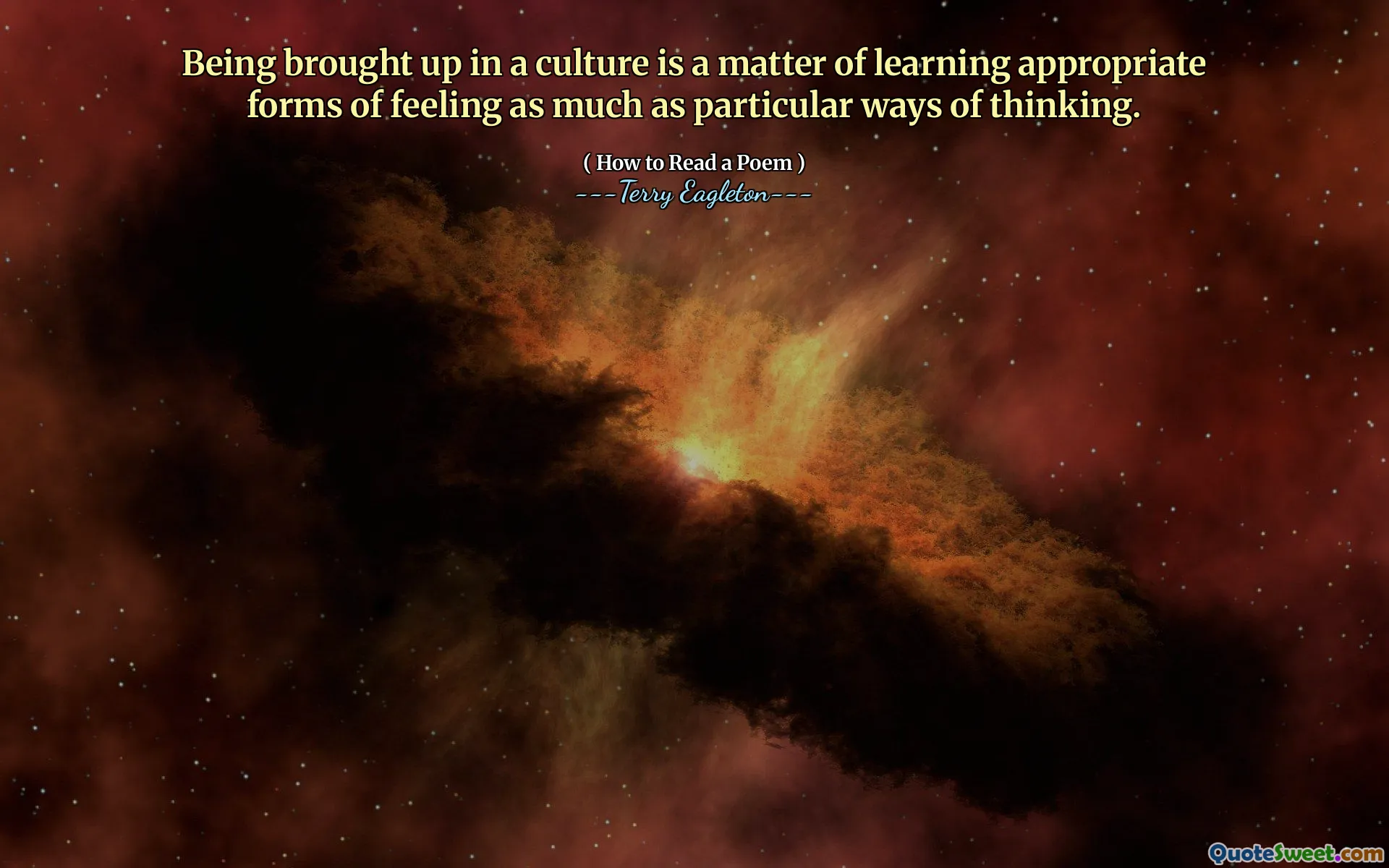
Being brought up in a culture is a matter of learning appropriate forms of feeling as much as particular ways of thinking.
This quote highlights the profound interconnectedness between culture and individual identity. It suggests that culture is not merely a set of external customs or traditions but deeply influences the way we experience and interpret emotions. When people are raised within a specific cultural framework, they learn to navigate social interactions, moral judgments, and aesthetic appreciations through a lens shaped by their environment. This learning process shapes not only their thoughts but also their feelings—the emotional responses that become socially acceptable or expected within that culture. For instance, certain societies may commend open expressions of joy, while others might promote restraint and melancholy as virtues, influencing how individuals feel and express these emotions.
Understanding this perspective encourages us to see emotional expression as culturally mediated, rather than purely innate. It prompts reflection on how much of our emotional life is a product of our socialization and how cultural norms define what is considered appropriate or inappropriate feelings. Furthermore, it raises awareness about the diversity of emotional expressions around the world and underscores the importance of cultural sensitivity. Recognizing that feelings are socially learned helps foster empathy, as we understand that emotional responses are contextual rather than universal. It also invites us to examine our own cultural biases and reflect on how they shape our personal experiences.
This insight deepens the appreciation of the complex ways in which culture influences human psychology. It reminds us that both thinking and feeling are constructed through the social processes that we inherit from our environment, shaping our worldview in profound and often subconscious ways.






